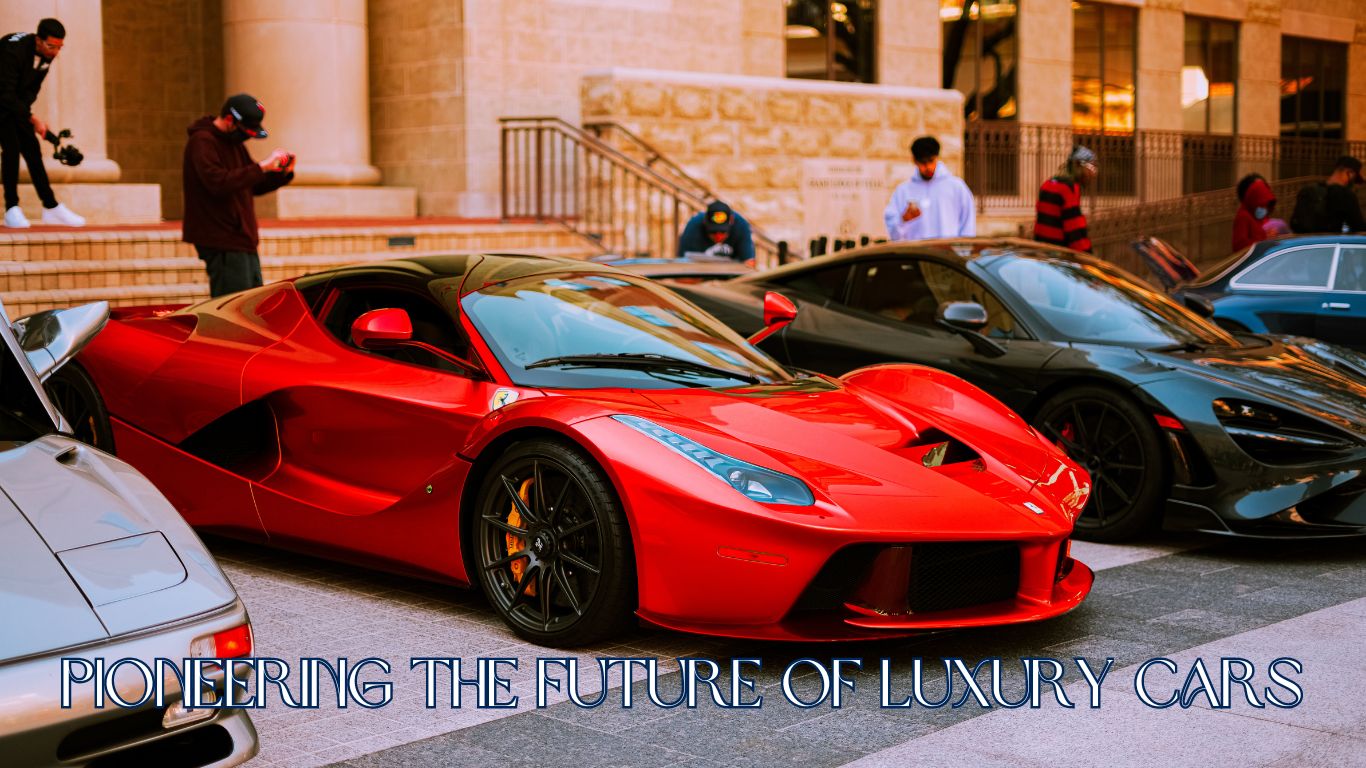Pioneering the Future of Luxury Cars
Evolution of Luxury Cars Through Time
Luxury vehicles, synonymous with elegance and sophistication, boast a captivating history characterized by relentless innovation. Let’s embark on a journey through the evolution of luxury cars and explore the pioneering efforts shaping their future.
Tracing the Rich Legacy
Luxury cars have a storied past, dating back to the early 20th century when automotive visionaries unveiled exclusive models tailored for the elite. Over the years, these vehicles have undergone remarkable transformations, from the introduction of iconic models to the integration of cutting-edge features. Technological advancements have played a pivotal role in elevating luxury cars into symbols of prestige and performance.
Current Trends in Luxury Cars
In today’s dynamic market, luxury car manufacturers are embracing sustainability and eco-consciousness. They are incorporating eco-friendly materials and alternative powertrains to minimize environmental impact. Furthermore, the infusion of state-of-the-art technology is reshaping the driving experience, with advanced infotainment systems, autonomous driving capabilities, and augmented reality displays becoming standard offerings. Customization options empower consumers to personalize their vehicles, enhancing the exclusivity of the luxury car ownership experience.
Addressing Challenges
Despite progress, luxury car manufacturers confront significant challenges in pioneering the future of mobility. Environmental concerns, including emissions regulations and climate change, present formidable obstacles to the development of sustainable luxury vehicles. Moreover, striking a harmonious balance between tradition and innovation is imperative for preserving brand heritage while adapting to evolving consumer preferences.
Innovations Shaping Tomorrow
The future of luxury cars hinges on electric and autonomous technologies, promising heightened performance, efficiency, and safety. Electric vehicles (EVs) offer emission-free driving without compromising luxury or performance, while autonomous driving systems redefine the notion of chauffeur-driven luxury. Advanced materials like lightweight carbon fiber construction and aerodynamic enhancements optimize performance and efficiency. Additionally, connectivity features and artificial intelligence (AI) integration facilitate seamless communication between vehicles and their surroundings, enhancing safety and convenience.
Leaders in Luxury
The luxury car landscape is fiercely competitive, with leading brands vying for supremacy through a fusion of performance, luxury, and innovation. Renowned manufacturers such as Mercedes-Benz, BMW, and Audi epitomize excellence and relentless innovation. Tesla, with its revolutionary electric vehicles, has disrupted the industry, setting new benchmarks for sustainability and performance. Collaborations between luxury car brands and technology firms further propel innovation, birthing groundbreaking technologies and features.
Understanding Consumer Demands
Consumer preferences in luxury cars are evolving, fueled by a desire for sustainability, connectivity, and comfort. Affluent consumers increasingly favor eco-friendly options, driving demand for electric and hybrid luxury vehicles. Connectivity features, such as advanced infotainment systems and seamless smartphone integration, are imperative for enhancing the driving experience and ensuring connectivity on the go. Comfort and safety remain non-negotiable, with luxury car buyers seeking premium interiors, advanced driver-assistance systems, and cutting-edge safety features.
The Power of Branding
Effective marketing and branding are pivotal in shaping consumer perceptions and stimulating demand for luxury cars. Manufacturers invest substantially in cultivating brand identity and reputation, leveraging their heritage, craftsmanship, and technological prowess to captivate discerning customers. Targeting affluent consumers through exclusive events, partnerships, and tailored experiences fosters brand loyalty and drives sales. In the digital era, social media platforms and online channels serve as vital avenues for luxury car brands to engage with their audience and showcase their latest innovations.
Societal Impact
Luxury cars wield a profound influence on society, shaping economic trends, cultural norms, and urban landscapes. The automotive industry fuels economic growth through job creation, manufacturing investments, and revenue generation. Moreover, luxury cars serve as status symbols, reflecting social standing and aspirations. The presence of luxury car dealerships and showrooms contributes to the development of upscale neighborhoods and commercial hubs, molding urban environments.
Looking Ahead
The future of luxury cars brims with innovation and disruption, fueled by technological advancements, evolving consumer preferences, and regulatory changes. The electric luxury segment is poised for exponential growth, with major manufacturers channeling investments into EV development and infrastructure. Mobility services like ride-sharing and subscription-based models are gaining momentum, offering consumers flexible alternatives to traditional car ownership. However, challenges such as battery technology, charging infrastructure, and regulatory frameworks loom large, underscoring the need for collaboration and innovation across the industry.
In Conclusion
Luxury car manufacturers are at the forefront of shaping the future of mobility, driven by innovation, sustainability, and luxury. From electric and autonomous vehicles to advanced materials and connectivity features, the automotive industry is undergoing a transformative evolution toward a more sustainable and connected future. By aligning with consumer preferences, harnessing technological advancements, and fostering collaboration, luxury car brands can continue to propel progress and define the future of mobility.
